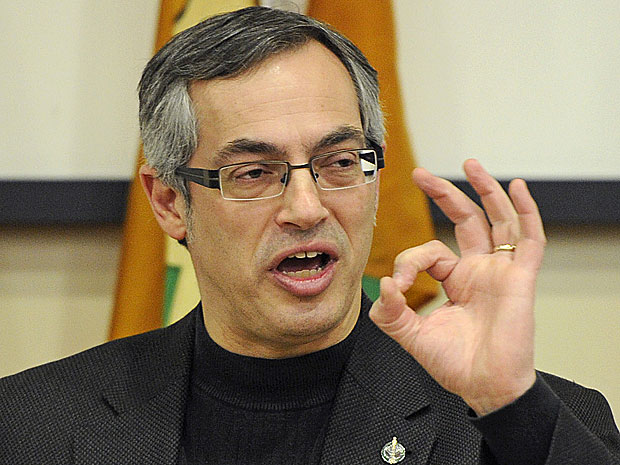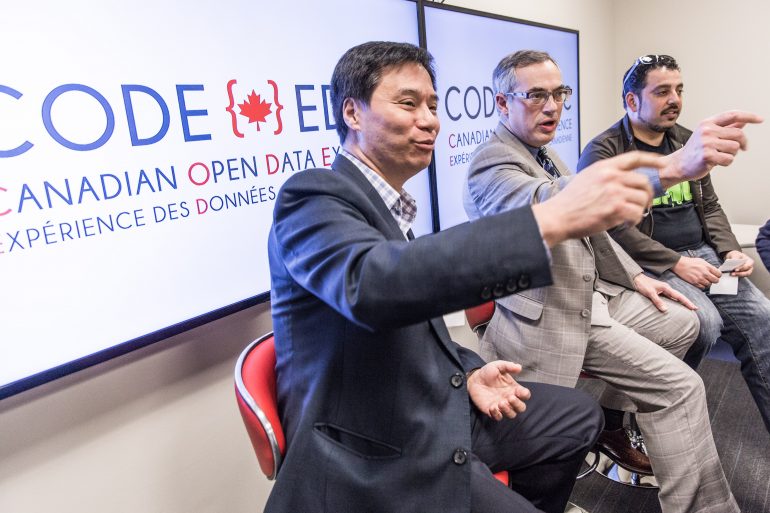This past Saturday, coders across Canada took part in CODE 2015, an intense ‘48-hour coding sprint’, creating apps using open data. Cash prizes and the pride of an app well done are generally the big draws for the initiated – but then, plenty of coders may have chosen to get in on the action for the sheer challenge of it.
As folks from Canada’s tech hubs endeavour to compete in the global marketplace, one area where we can be tech pioneers is in using open data to build the next generation of apps. That was the theme of the Vancouver CODE 2015 Roadshow that took place at the BCTIA Innovation Hub last Wednesday. About 60 people, including students, potential hackathon participants and members of the venture capital community turned up to hear about this opportunity.
“Data is open data by default. Government departments must publish their data every year.”
It may seem odd for the secrecy-minded federal government, of all entities, to be leading the way in opening up datasets to the public – but that’s what’s happening, noted federal MP Tony Clement, President of the Treasury Board, who spoke at the event. “We’ve published over 200,000 datasets with the criteria that it doesn’t violate national security or privacy,” Clement says. “And we’ve made a new rule that data is open data by default. Government departments must publish their data every year, unless they have a good reason not to.” That follow-up step was crucial to ensuring that the data release wasn’t just a one-time deal.
We’ve already seen some significant milestones tip over in the past year, thanks in part to last year’s nationwide hackathon, CODE 2014. As Ray Sharma, Managing Partner of Extreme Venture Partners, a venture capital firm, noted: “In 2014 we had 930 participants, 290 teams, and 110 open data apps created from coast to coast.”

A duo known as Electric Sheep won the top prize last year for newRoots; their app uses open data that matches new Canadians with cities that will give them the greatest opportunities. Deep Breath was another popular app that came out of the event, using cities’ air quality monitoring stations to tell you the air quality in your area.
“We’re really just scratching the surface of what’s possible,” Sharma says, noting that the greatest value will come from being able to reliably combine public and private data. He pointed to the example of GoldCorp, which astonished people across the gold mining sector when they shared proprietary geological data to let anyone in the world prospect for gold in return for a $575,000 in cash prizes. That investment literally yielded goldmines as the entrants identified over 100 sites and finds worth well over $6 billion.
The opportunity is there – but they also come with new challenges. “Trying to create smart cities, we’ve modeled cities as machines, but it’s the wrong paradigm,” says David Vogt, President of Urban Opus Society, a nonprofit ‘smart city’ innovations accelerator. Coders need to be able to get at people’s behavioural data that’s passively given by default in order to “hack society” and create social and economic benefits.
As well, there needs to be a common standard for sharing open data so that sets can be combined and used in innovative ways. “For instance, among 20 municipalities, no one is sharing it the same way, making it hard to leverage,” Vogt says. A third party “neutral broker” is needed to help make that possible.
Open data could be the gold-rush of the future for the innovative coders that get there first – if we open it up right.


